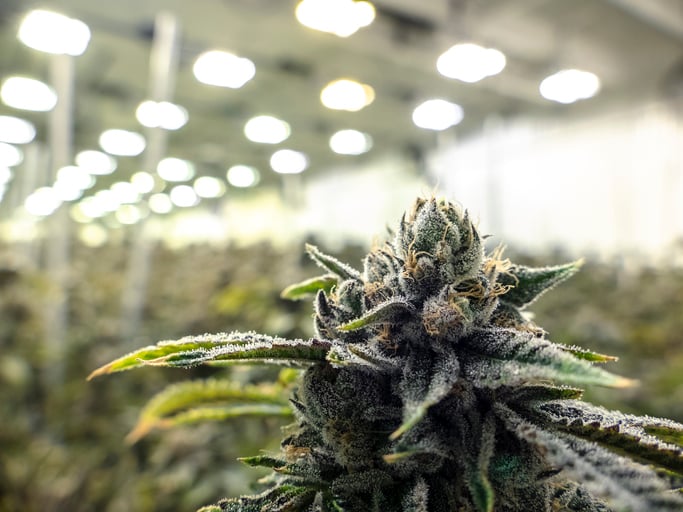Two of the biggest Canadian marijuana producers announced important new deals last week. Aurora Cannabis (ACB 1.72%) said on Monday that it was buying privately held Whistler Medical Marijuana for up to 175 million Canadian dollars (around US$132 million), including potential milestone payments. Later in the day, Canopy Growth (CGC +0.92%) announced that it would invest up to US$150 million in hemp operations in New York state.
These deals had similar price tags and were announced on the same day, but that's about all they had in common. And the differences between Canopy's and Aurora's investments show why one of these marijuana stocks is a much better pick for investors right now than the other.

Image source: Getty Images.
Aurora's acquisition
Whistler Medical Marijuana is one of the "blessed eight" group of Canadian cannabis producers to receive initial licenses for growing medical cannabis. The company's organic cannabis products have a great reputation in the market. And, unlike Aurora Cannabis, Whistler claims a strong track record of profitability.
Investors cheered Aurora's acquisition of Whistler, with Aurora's share price jumping on news of the deal. Aurora Cannabis CEO Terry Booth said that his company plans to leverage its distribution channels in Canada and in international markets to increase the market reach for Whistler's premium organic cannabis brands.
All of this sounds great. But what exactly does Aurora get in return for its $132 million investment?
Whistler's production capacity is puny. Even after the completion of its second facility later this year, the company will be able to grow only around 5,000 kilograms per year. That's nearly a rounding error for Aurora's projected production capacity of more than 500,000 kilograms annually.
Let's look at the acquisition in another way. Aurora is paying $26.4 per gram for Whistler's annual production capacity. Can the company make that much selling Whistler's brands? Sure, Whistler's organic cannabis products command a premium price in the marketplace of 50% or so higher than other brands. But based on Aurora's own average selling price per gram, that premium isn't nearly high enough to justify what the company is paying for Whistler.
Then there's the matter of how Aurora Cannabis is paying for Whistler. It's an all-stock transaction. Using its stock to fund a dizzying number of deals has been Aurora's standard operating procedure. But those shares have to come from somewhere.
Aurora Cannabis has issued new shares like crazy. As a result, dilution has taken a huge toll on the price of existing Aurora shares. In 2018, for example, Aurora's share price dropped 35% while its market cap jumped nearly 55%.
Canopy's expansion
Check out the latest Canopy Growth earnings call transcript.
Meanwhile, Canopy Growth made an agreement to expand into the U.S. The company won a license to process and produce hemp in New York. Canopy is building a Hemp Industrial Park with large-scale production capabilities that can produce "tons of hemp extract on an annual basis," according to the company.
Canopy Growth was able to pull off this deal thanks to the passage of the Farm Bill in December 2018. This legislation legalized hemp in the U.S. The Farm Bill defined hemp as cannabis that contains very low levels of psychoactive compound THC.
The potential market for hemp-based cannabidiol (CBD) products in the U.S. dwarfs that of the entire Canadian marijuana market. Cannabis market research company Brightfield Group projects that U.S. hemp-based CBD product sales could reach $22 billion by 2022. By comparison, the Canadian marijuana market, including both medical and recreational cannabis sales, will probably total less than $6 billion in four years, according to projections from ArcView Market Research and BDS Analytics.
It's also important to note that Canopy Growth forged some key political relationships with its U.S. hemp deal. Senate minority leader Chuck Schumer (D.-NY) praised Canopy's establishment of the Hemp Industrial Park. Canopy also likely built some ties with New York governor Andrew Cuomo, who is pushing for the legalization of recreational marijuana in his state.
And Canopy Growth isn't using its stock to fund the expansion into the U.S. The company said that the deal is "another example of the strategic advantage" that it has as a result of the $4 billion investment made by major alcoholic beverage company Constellation Brands. Canopy is exactly right. Its relationship with Constellation and the cash received from the transaction gives it a key advantage over its peers.
A clear winner
Aurora bought a great company. But it appears to have spent too much for a deal that is arguably as much show as it is substance. On the other hand, Canopy Growth is investing around the same amount of money on a project that positions it to compete in a huge market.
Canopy Growth's stock performance has trounced Aurora's in 2018 and so far in 2019. The latest deals by the two companies provide some clues as to why that's the case. Canopy remains the clear winner over Aurora Cannabis.







